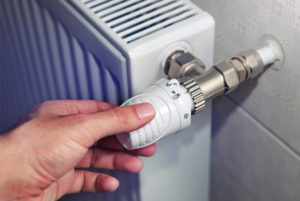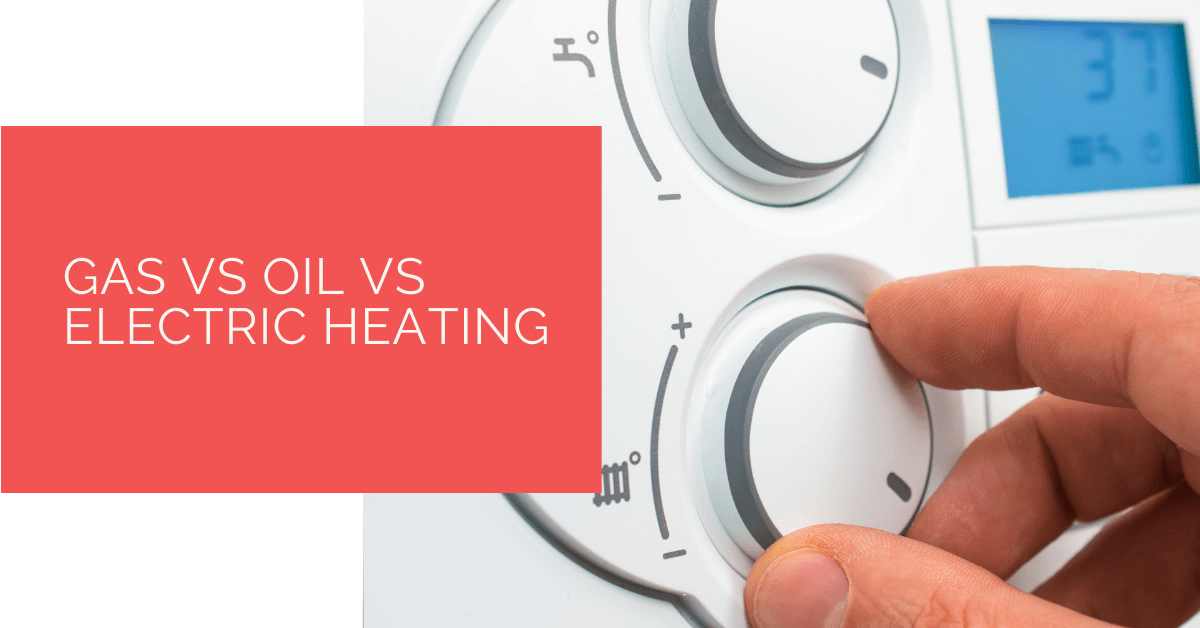Heating systems are an essential part of our daily lives, especially during the colder months, as they provide warmth and comfort. As the seasons change, it’s crucial to ensure that our heating system is efficient and effective. Central gas heating has been a popular choice in many regions, as it offers a reliable source of warmth during chilly winters. However, people often wonder if alternative heating methods, such as oil or electric systems, could be more suitable. These questions are valid and require careful consideration. The purpose of this article is to provide valuable insights to help consumers make informed decisions when selecting the right heating system for their needs.
Contents
Key Takeaways
- Gas central heating is popular in the UK due to its low running costs, direct connection to the main gas source, and high efficiency.
- Oil central heating offers accessibility for off-grid homes, fewer risks compared to gas, and affordability regarding boiler purchase.
- Electric heating systems have low installation costs, operate quietly, and pose no leakage risks, but they can lead to higher energy bills and are sensitive to electricity prices. The choice between these heating systems depends on individual priorities and the pros and cons of each.
Heating System Working Principle
Gas heating, oil heating system, and electric heating are the conventional types of heat mechanisms. Hence, it is vital to understand how each system works before comparing the three.
Working of Gas Systems
Central heating systems typically use a boiler that carries heat into the radiator and rooms. Gas boilers use a systematic method of natural gas to produce heat in a property.
Here’s how a typical gas central heating process takes place:

- Gas from an outside gas grid enters the boiler when switched ON
- The gas boiler burns it and transfers the heat to the circulating water
- A heat pump pushes this water into the heating system
- This hot water circulates in the radiator, thereby heating the room
- The electric thermostat monitors the gas boiler temperature and turns it OFF if necessary
Hence, the simple mechanism and low gas prices make this type of heating popular.
Working of Oil Heating Systems
The overall working principle of oil central heating is similar to the gas option. However, oil boilers use oil as the heating source instead of a gas.
A gas heating mechanism is connected to the mains gas grid. However, in the case of an oil boiler, you need to buy or rent the fuel from a reliable supplier.
Here’s a quick look at the heating process:
- This system is termed ‘wet heating’ due to the use of oil
- The oil-fired boiler transfers heat from the oil to circulating water
- This hot water travels to the radiators, generating the desired level of heat
- Most oil boilers have a hot water store for supply purposes
- An oil storage tank proves helpful in these systems
However, with soaring oil prices and a focus on reducing global warming, this system is becoming less popular.
Working of Electric Heating Systems
In electric heating, you can replace electric boilers with an electric radiator. Hence, these systems offer more flexibility.
In this process, the energy from electricity is converted into heat. Here are the main points of an electric storage heating system:
- A radiator is a unit that contains heating elements or a thermal fluid
- When you plug the unit into an electric outlet, these elements heat up
- The resultant heat is transferred to the surrounding air
- Hence, convection and radiation are the major heating principles in this system
Although the simplest of the three options, electric heating has specific challenges that make it less popular than gas heating.
Reasons to Choose Gas Central Heating
 Everyone deserves a cosy home at reasonable costs. After all, you need to check the heating bills to find the perfect balance in your spending and lifestyle.
Everyone deserves a cosy home at reasonable costs. After all, you need to check the heating bills to find the perfect balance in your spending and lifestyle.
So, here’s how using gas boilers prove cost-effective and beneficial.
Cheap Option
The biggest reason behind the popularity of gas central heating is the low price of gas.
Hence, these systems’ running costs are low compared to the oil and electric options. Also, connecting with the mains gas source reduces other additional costs.
No Need of Additional Storage
Consumers do not need to store gas in a storage tank. Hence, you save money by eliminating the need for an extra unit to store fuel.
Gas has a direct connection to your heating system through a robust pipeline network. Hence, reliability is high in such systems.
High Efficiency
A new boiler of the condensing type has improved heat transfer efficiency. Hence, your heating needs are fulfilled without much burden on the budget.
Also, the simple switching mechanism proves ergonomic to several consumers. These points indicate the practicality of gas heating systems.
Reasons to Choose Oil Central Heating
Oil boilers have been serving off-grid homes across the globe. This system has less heating costs than the electric alternative and offers the following benefits.
High Accessibility
Suppliers can transport oil almost anywhere. This is vital for people living in areas without proper gas grid connectivity.
In addition, you can install an oil boiler outside the house in some cases. Hence, the annual servicing process becomes easier and more accessible.
Fewer Risks
Oil can indeed be flammable. However, it is not prone to explosion as gas is. Hence, you can manage this fuel in a more controlled manner.
Also, oil is a simple fuel to store. Hence, stocking at a safe place can prove beneficial to avoid any fire accidents or risks.
Low Cost of Oil Boilers
Buying an oil boiler is affordable. Hence, you save some money on the boiler unit. Also, companies manufacturing oil boiler models are adequate in number.
Hence, the components, availability, and choices are high in the case of an oil boiler.
Reasons to Choose Electric Heating
The most significant benefit of electric boilers is that they do not burn fuel. They simply use electricity without harmful emissions. Here are three main reasons to opt for using an electric boiler.
Low Installation Costs
Electric boilers are easy and less expensive to install than the gas alternative. Also, an electric boiler does not need connections with any pipeline grid.
These systems need low maintenance. Hence, the overall cost of electric systems is less than other technologies.
Quiet Operation
 Since this system does not involve fuel burning, the operating noise is nearly negligible. Hence, you can heat water or your room with high convenience.
Since this system does not involve fuel burning, the operating noise is nearly negligible. Hence, you can heat water or your room with high convenience.
This is an important reason for most consumers to prefer electric boilers. Also, the smart heating controls in these systems ensure hassle-free heating management.
No Leakage Risks
Without the need for a gas pipeline or storage tank, this system is free from any type of leakage. Also, there is no risk of gases like carbon dioxide or monoxide circulating in the system.
Hence, your property is safe from any hazards of high magnitude. Also, you can install radiators instead of electric boilers to keep the system functional.
Gas Heating vs Oil vs Electric – Cons
Now that you know the benefits or reasons to prefer each system, it is vital to understand the limitations as well. This section lists the disadvantages of each heating system.
Cons of Gas Heating
Heating gas contributes to climate change. However, there are many other reasons to rethink installing this system.
- High installation costs
- Susceptible to carbon monoxide leaks
- Need of periodic maintenance
- Costly upgrade to a new boiler
Cons of Oil-based Heating
Being a fossil fuel, Oil poses some risks to the environment if managed improperly. Also, power generation through this source can prove less efficient.
- Need of external storage unit
- Dependency on conventional fossil fuels
- Possible problems such as oil tank leakage
- Lack of transportation of fuel
Cons of Electric Heating
This type of heating can impact your energy bills directly. Also, the system’s efficiency depends on the electricity prices. Although this system is comparatively environmentally friendly, it has the following limitations:
- High energy bills
- Cannot power large homes
- Can face the impact of power outages
- Electricity production utilises fossil fuels
Hence, choosing the right heating system for your property depends on your priorities and analysing these pros and cons.
Installation Costs
Here are the cost estimates to install each of the prominent heating boilers. However, note that your house area is vital to determining the heating costs and output capacity.
- Gas boiler: £1,600 to £2,000 range
- Oil boiler: £1,180 to £3,500 range
- Electric boiler: £1,500 (approximately)
In addition, you need to consider other costs like radiators, hot water pipes, and one unit for storage as per requirement.
Reducing Heat Cost
Electricity, oil, or gas are conventional sources. Hence, relying on them for long-term heating solutions can prove detrimental in leaving a carbon footprint.
However, some consumers do not try alternatives like solar panels for power generation due to high upfront costs. If you are one such customer, here are other techniques to reduce heating costs.
Invest in Insulation
You can reduce the running costs of any heating setup through proper insulation. This method also helps lower your carbon footprint.
Significantly, techniques like spray foam insulation, double glazing, and draft proofing can reduce the heat exchange of the interior and outside atmosphere.
Hence, your chosen heating solution will run more efficiently.
Install Smart Thermostat
 To contribute to a sustainable future, smart devices have become essential. These gadgets improve the efficiency and control of standard HVAC systems.
To contribute to a sustainable future, smart devices have become essential. These gadgets improve the efficiency and control of standard HVAC systems.
Hence, the load on energy production reduces up to an extent. Smart thermostats are one such device that allows you to control the temperature of your installed system remotely.
As a result, you can save electricity utility bills and control working conveniently.
Choose Proper Solution
Different consumers have distinct needs. Your focus can be low carbon generation or utilising a ground source heat pump. Regardless, proper selection of the heating solution can help reduce your cost.
By choosing a manageable and convenient heating solution, you can better control the parameters involved. In addition, government incentive programs can decrease your dependency on conventional solutions.
Hence, gas, oil, or electric – choose a system that you can use effectively.
Heat Pump Source: Reliable Heating and Cooling Solutions
At Heat Pump Source, we take pride in our unwavering commitment to serving the UK with top-tier HVAC solutions. From the efficiency of heat pumps and the cool relief of air conditioning to the warmth of boilers, radiators, and underfloor heating, our dedicated team is always at the forefront of innovation. We understand the unique needs of every household and business, and we strive to provide dependable health and cooling products and services that are tailored just for you. Ensuring your comfort and satisfaction is our utmost priority. Whether you have questions, need guidance, or require support, we’re always here to assist. Please don’t hesitate to contact us; we’re eager to be of service.
Endnotes
The selection between these three solutions is subjective. If you have budget constraints, opt for gas type heating or electrical boilers.
On the other hand, if you have a large house, opt for oil heating. This system is handy if you cannot connect to a gas or power grid. Finally, if you want to use an environmentally friendly option, you can choose an oil boiler with proper maintenance.
Also, electric boilers can be a greener option as they do not emit gases. Hence, you can hopefully choose a suitable heating solution depending on the mentioned details.
About the Author
At Heat Pump Source, our articles are the product of a collaborative effort among a team of highly skilled HVAC experts. Our dedicated professionals, hailing from diverse backgrounds in heating, ventilation, air conditioning, and refrigeration, contribute their extensive knowledge and experience to every piece of content. This multidisciplinary approach ensures comprehensive coverage. Our commitment is to deliver authoritative, reliable, and tailored advice to meet the unique needs of every household and business across the UK.

